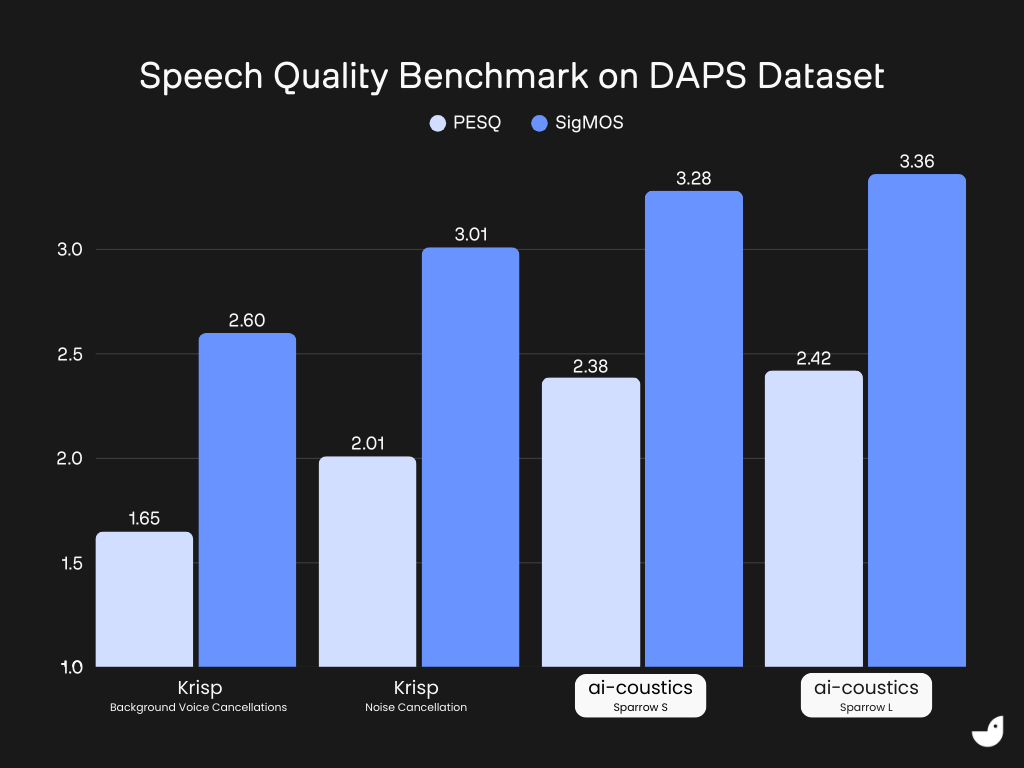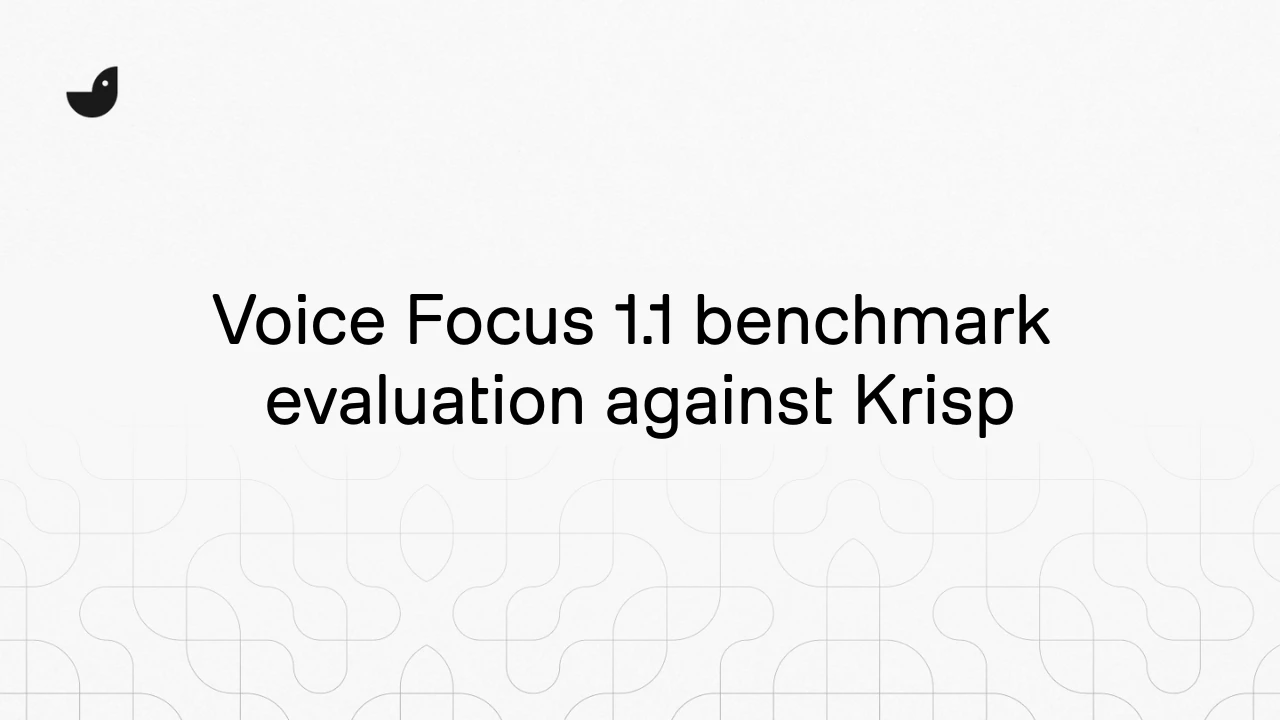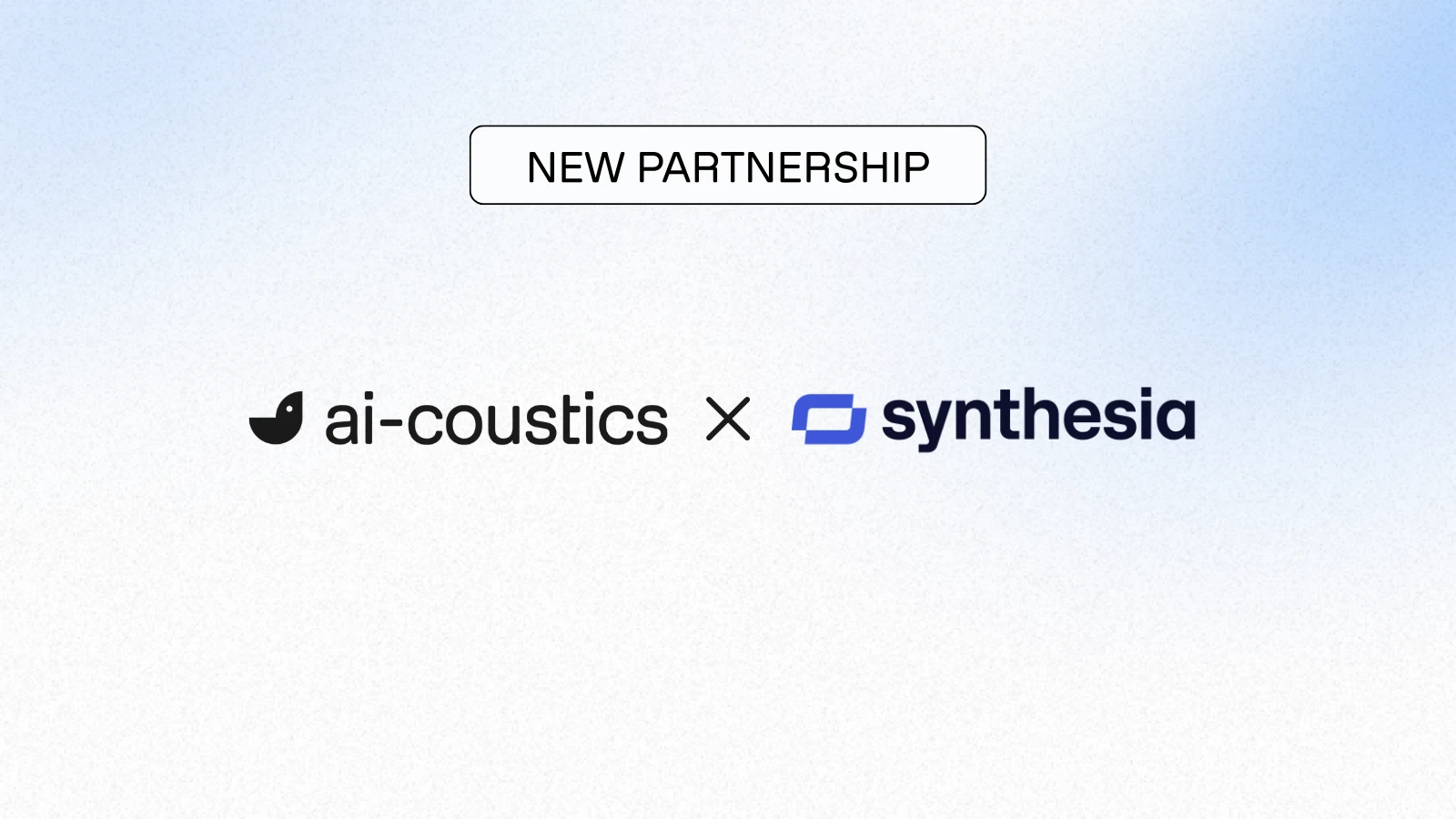As the voice AI industry grows, one core challenge has become clear: the audio on the other end of the line. User audio input has a massive impact on your voice agent’s functionality, which makes AI-powered audio enhancement a crucial addition to your pipeline. But which audio enhancement should you choose? Both Krisp and ai-coustics offer audio enhancement tools designed for voice agents. In this guide, we’ll break down the two solutions to see what suits you best.
While Krisp and ai-coustics share overlapping goals – delivering clearer voice and reducing noise – the two companies take different approaches. This comparison walks through core features, target use cases, strengths and weaknesses, pricing, and includes audio samples to experience each technology in action.
Krisp vs ai-coustics: Which audio enhancement tech suits your needs?
The ai-coustics SDK provides real-time audio enhancement, delivering studio-quality sound for voice agents, transcription systems, communication apps, and more. Its models go beyond simple noise suppression – they reconstruct and restore the natural timbre and clarity of speech, resulting in more intelligible and lifelike audio. Developers and teams choose ai-coustics for its high-performance SDK, flexible pricing, and seamless integration with modern audio stacks such as LiveKit, PipeCat, and WebRTC.
Krisp, by contrast, is a noise cancellation platform built primarily for conferencing and communications. It uses traditional subtractive denoising to remove background sounds and echo in real-time calls, making it well-suited for corporate and end-user applications like Zoom or Slack. While Krisp excels at filtering distractions in meetings, it offers less control or customization for developers building speech-AI products or voice agent pipelines.
How is ai-coustics different from Krisp?
1. ai-coustics offers smoother, more transparent onboarding
Krisp’s heritage is in consumer and enterprise communications, which means that its contract and pricing processes are heavily tailored toward old school, enterprise roadmaps. Krisp requires manual contracts and doesn’t allow production testing during the trial period. Engineers can only test in sandbox environments, which slows evaluation.
By contrast, ai-coustics is built by developers, for developers. It enables bottom-up adoption with clear transparency into model versions, sample-rate handling, and detailed telemetry. The SDK can be downloaded instantly, activated through a self-service license, and tested immediately. There’s direct Slack access to the engineering team, not just a support inbox. You can also access documentation and benchmarks for all ai-coustics models, giving developers control over variables like latency, quality, and computation.
In short, Krisp feels like enterprise software; ai-coustics feels like a modern developer tool.
2. ai-coustics goes beyond noise cancellation
Krisp is optimized for conference calls: human-to-human voice, static 16kHz audio, and typical office noise. Its approach is purely subtractive, filtering out unwanted sound but often flattening or dulling the voice in the process. And while it may perform well in a quiet office environment, its models often struggle in complex, real-world situations, where background noise is louder and more variable. (Think cafés, public transport, traffic, and more.)
Sparrow, ai-coustics’ real-time model, is purpose-built for streaming speech enhancement. The result is a more natural, “studio-like” sound, with an improvement in your voice agent’s word error rate. See more about ai-coustics vs Krisp performance below, where we test the models against each other.
3. ai-coustics offers a more flexible pricing model
Krisp’s pricing is rigid, requiring a large upfront investment through annual SDK licenses and fixed usage costs. While this model may suit established enterprise deployments, it often alienates smaller startups or teams seeking flexibility as they experiment with new products.
In contrast, ai-coustics is built by a startup for startups – designed to support innovators from day one with transparent, scalable audio solutions that grow and evolve alongside their business.
How do ai-coustics and Krisp’s audio enhancement compare?
Company structure and aims are important – but ultimately, it’s audio enhancement performance that will make the biggest difference to your company. Let’s take a look at how ai-coustics and Krisp’s technology handle a range of audio contexts and requirements.
We tested all models with DAPS (Device and Produced Speech), a dataset created at Stanford and here are the results:

Across this and internal datasets, ai-coustics performs the same as or better than Krisp. And particularly in challenging acoustic environments like low signal-to-noise ratio, dynamic noises, greater microphone distances, and reverberant conditions, ai-coustics offers improved speech enhancement technology. ai-coustics technology also removes distortion artifacts from analog and digital microphone clipping and avoids over-suppression of lower-volume and emotional speech.
These quantifiable differences make a big impact on your voice agent’s word error rate and automatic voice recognition, boosting your product’s overall performance.
Want to hear for yourself?
De-noising: Krisp vs. ai-coustics
Original
Krisp
ai-coustics
De-reverb: Krisp vs. ai-coustics
Original
Krisp
ai-coustics
Distortion: Krisp vs. ai-coustics
Original
Krisp
ai-coustics
Choose ai-coustics for unrivalled quality
In summary, testing shows that ai-coustics consistently matches or surpasses Krisp across key audio quality benchmarks, excelling in low signal-to-noise and reverberant environments. Its Sparrow model produces clearer, more natural speech with minimal artifacts or distortion. With flexible integration and transparent performance data, ai-coustics sets a new benchmark for real-time audio enhancement.
Want to learn more? Get in touch with the team.



